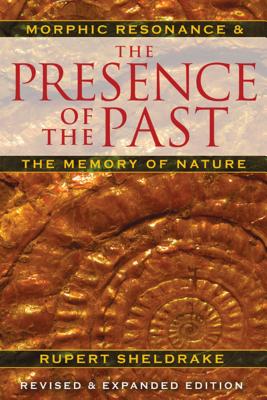The Presence of the Past: Morphic Resonance and the Memory of Nature

The Presence of the Past: Morphic Resonance and the Memory of Nature
Explains how self-organizing systems, from crystals to human societies, share collective memories that influence their form and behavior - Includes new evidence and research in support of the theory of morphic resonance - Explores the major role that morphic resonance plays not just in animal instincts and cultural inheritance but also in the larger process of evolution - Shows that nature is not ruled by fixed laws but by habits and collective memories In this fully revised and updated edition of The Presence of the Past, Cambridge biologist Rupert Sheldrake lays out new evidence and research in support of his controversial theory of morphic resonance and explores its far-reaching implications in the fields of biology, chemistry, physics, psychology, and sociology. His theory proposes that all self-organizing systems, from crystals to human society, inherit a collective memory that influences their form and behavior. This collective memory works through morphic fields, which organize the bodies of plants and animals, coordinate the activities of brains, and underlie conscious mental activity. Sheldrake shows how all human beings draw upon and contribute to a collective human memory and that even our individual recollections depend on morphic resonance rather than physical storage in the brain. He explores the major role that morphic resonance plays not just in animal instincts and cultural inheritance, such as religion and ritual, but also in the larger process of evolution, which Sheldrake shows to be more an interplay of habit and creativity than a mere "survival of the fittest." Offering a replacement for the outdated, mechanistic worldview that has dominated biology since the nineteenth century, Sheldrake's new understanding of life, matter, and mind shows that rather than being ruled by fixed laws, nature is essentially habitual. And because memory is inherent in nature, he explains, in order to survive successfully for generations to come, we will have to give up our old habits of thought and adopt new ones: habits that are better adapted to life in a world living in the presence of the past--as well as the presence of the future.
PRP: 154.69 Lei
Acesta este Prețul Recomandat de Producător. Prețul de vânzare al produsului este afișat mai jos.
123.75Lei
123.75Lei
154.69 LeiLivrare in 2-4 saptamani
Descrierea produsului
Explains how self-organizing systems, from crystals to human societies, share collective memories that influence their form and behavior - Includes new evidence and research in support of the theory of morphic resonance - Explores the major role that morphic resonance plays not just in animal instincts and cultural inheritance but also in the larger process of evolution - Shows that nature is not ruled by fixed laws but by habits and collective memories In this fully revised and updated edition of The Presence of the Past, Cambridge biologist Rupert Sheldrake lays out new evidence and research in support of his controversial theory of morphic resonance and explores its far-reaching implications in the fields of biology, chemistry, physics, psychology, and sociology. His theory proposes that all self-organizing systems, from crystals to human society, inherit a collective memory that influences their form and behavior. This collective memory works through morphic fields, which organize the bodies of plants and animals, coordinate the activities of brains, and underlie conscious mental activity. Sheldrake shows how all human beings draw upon and contribute to a collective human memory and that even our individual recollections depend on morphic resonance rather than physical storage in the brain. He explores the major role that morphic resonance plays not just in animal instincts and cultural inheritance, such as religion and ritual, but also in the larger process of evolution, which Sheldrake shows to be more an interplay of habit and creativity than a mere "survival of the fittest." Offering a replacement for the outdated, mechanistic worldview that has dominated biology since the nineteenth century, Sheldrake's new understanding of life, matter, and mind shows that rather than being ruled by fixed laws, nature is essentially habitual. And because memory is inherent in nature, he explains, in order to survive successfully for generations to come, we will have to give up our old habits of thought and adopt new ones: habits that are better adapted to life in a world living in the presence of the past--as well as the presence of the future.
Detaliile produsului










